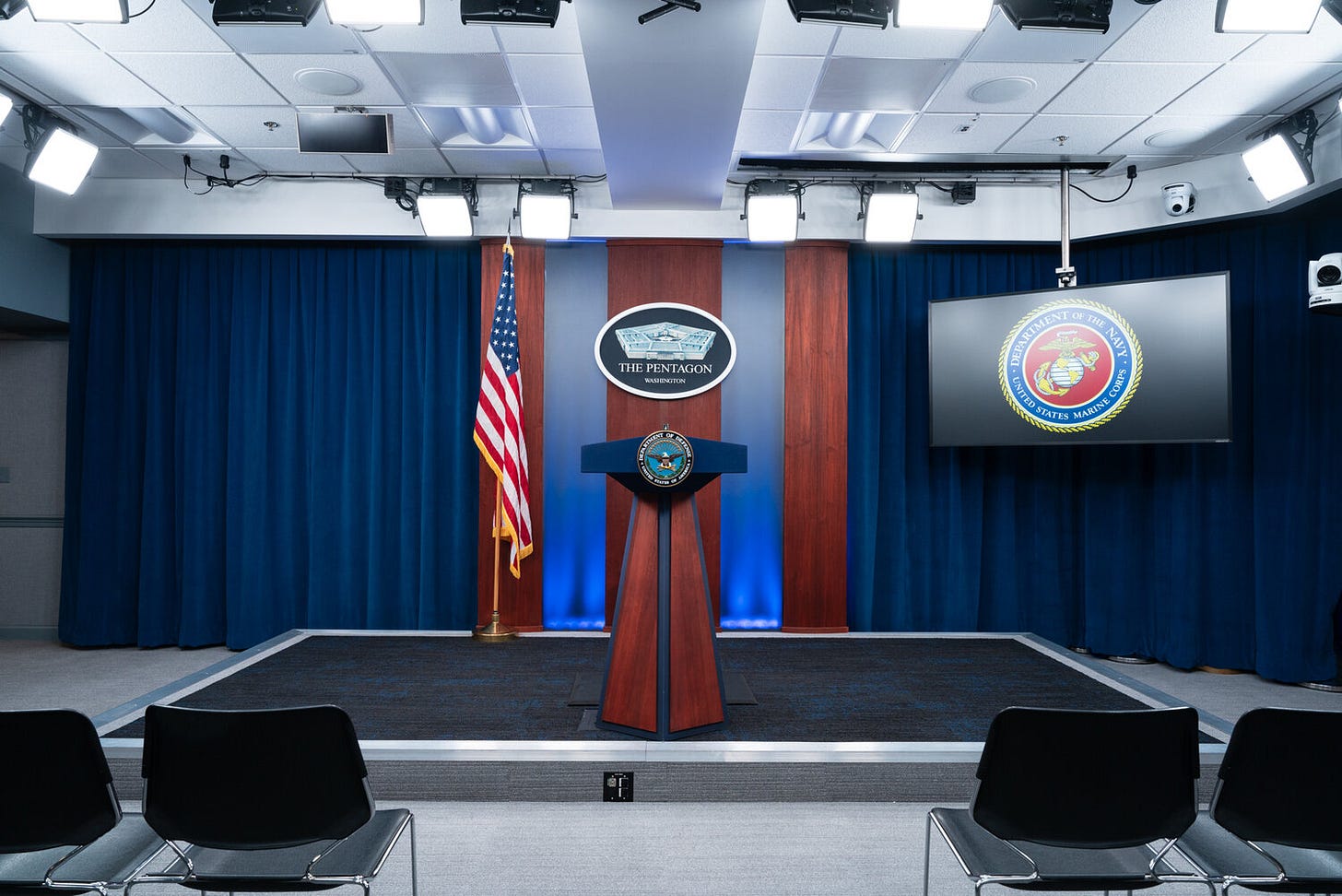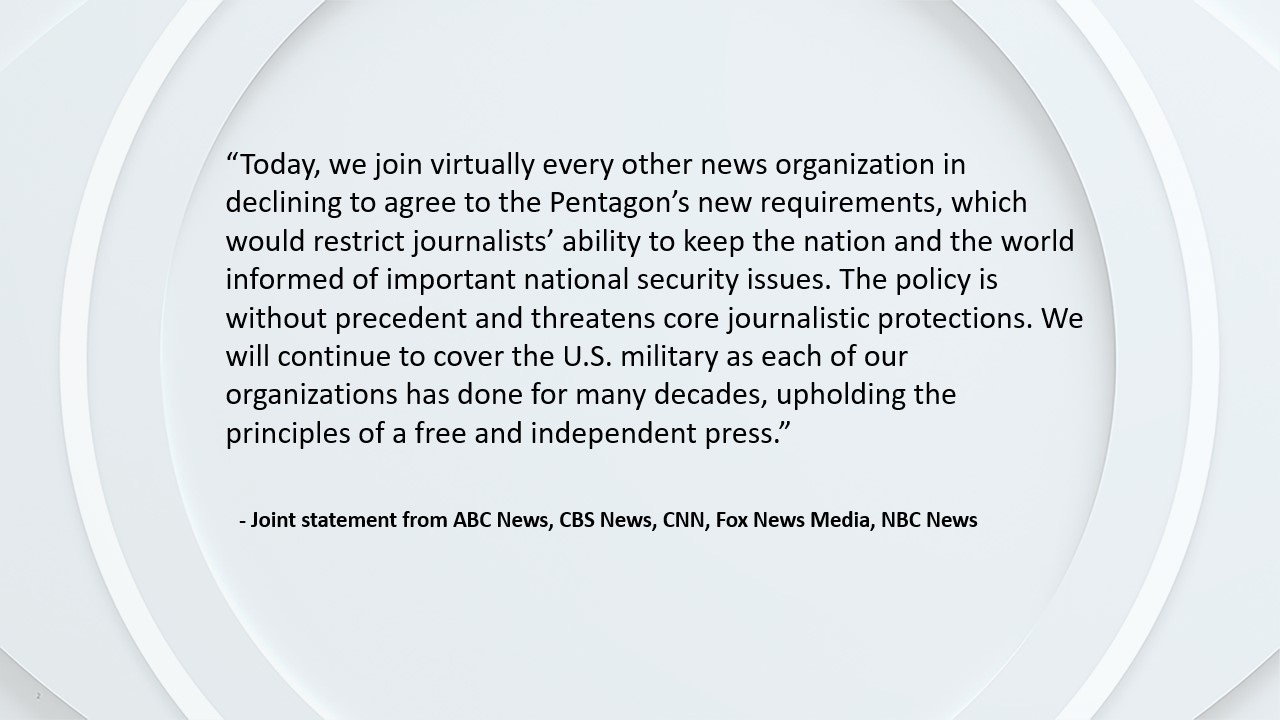When I was General Counsel for the Army and Air Force, the first thing I would do in the morning was skim an aggregation of press clippings since I knew that my day would likely be consumed by an embarrassing or negative story about the Army or Air Force. During my time at the Army, an AP investigative report of Army atrocities during the Korean War resulted in hours of work, including a trip to South Korea. During my time at the Air Force, Washington Post stories about mishandling the remains of returning soldiers resulted in an IG investigation (supported by my office), a Special Counsel investigation and a not-so-friendly appearance before a House Committee.
The Pentagon Press Corps can clearly ruin your day, and they ruined my day on many occasions. Despite this, when I was at the Pentagon, neither I nor the civilian and military leadership attempted to put restrictions on the press doing their job. Why? The press is essential to ensuring accountability of government institutions—including the Department of Defense.
The Pentagon Press Corps is also filled with the cream of the crop. Most have spent years covering the military and really understand the military. They don’t always get the story right—but more often than not, they do. And in my experience, they are careful about not publishing details that could hamper or endanger ongoing operations.
To put it bluntly, when I was at the Pentagon, we were not snowflakes. We accepted the fact that the press will write critical stories. It appears, however, that Defense Secretary Hegseth (I won’t call it the Department of War until Congress changes the name) is a snowflake. He announced a new Pentagon policy that would sharply restrict the ability of the press to do their jobs. He had already stopped the press from unescorted access in the Pentagon, which was bad enough. He removed national news outlets from a media space and gave it to conservative outlets instead. The new policy—even after making some softening changes—is even worse. The most troubling provision is that it threatens to remove the press credential for any reporter who publish or seek out information that was not authorized for releases—both classified and unclassified information.
In order to keep their press credentials to be in the Pentagon, members of the Pentagon Press Corps must agree to the new rules by close of business tomorrow.
Did the press corps gave? No. They resisted. Virtually every press outlet in the Pentagon—including Fox and Newsmax—have announced that they will not sign the new policy. The only news outlet to agree appears to be One America News, a MAGA outlet. ABC News, CBS News, CNN, NBC News and Fox News issued a joint statement today denouncing the new policy:
AP, NPR and the Pentagon Press Association issued similar statements.
So what happens next? I suspect that Hegseth will follow through and kick most of the news media out of the building. This won’t stop good coverage—the press corps have built large networks in the building and can still get the story. If Hegseth does so, however, I fully expect a lawsuit.
The press corps has a great argument: the First Amendment does not allow DoD to condition building access on a promise not to publish “un-authorized” stories.



